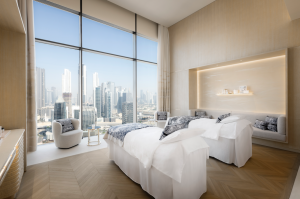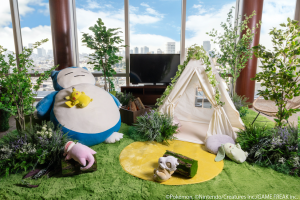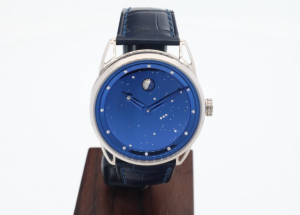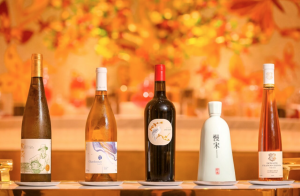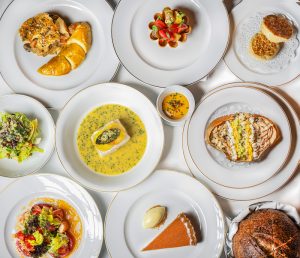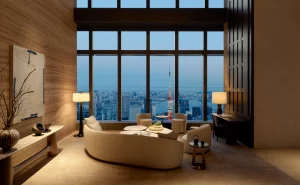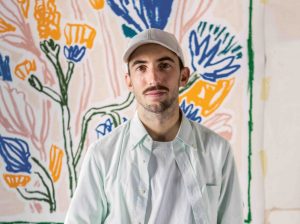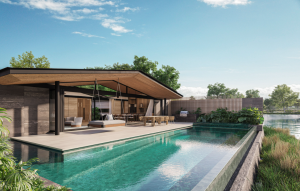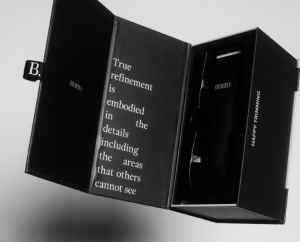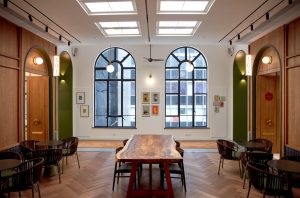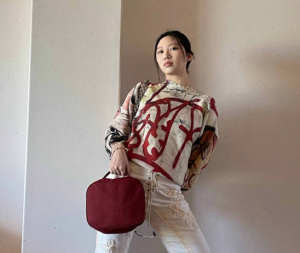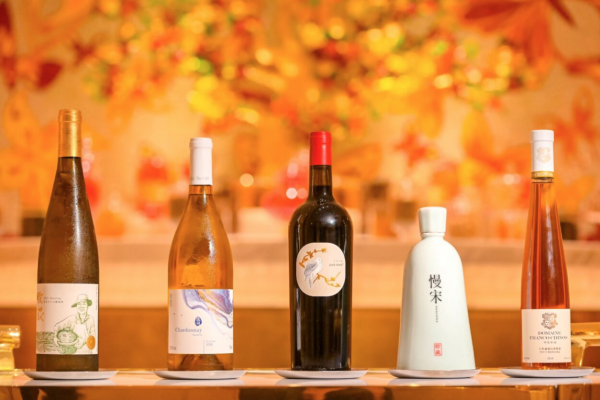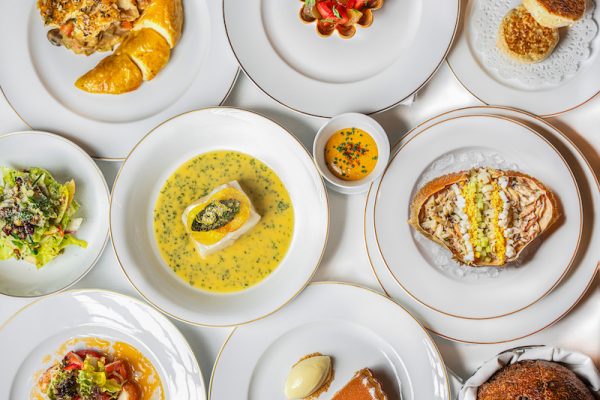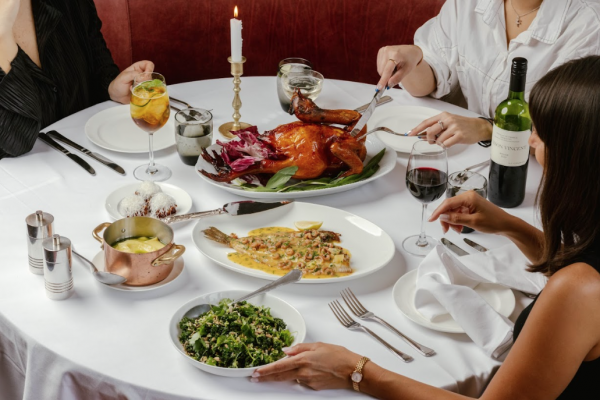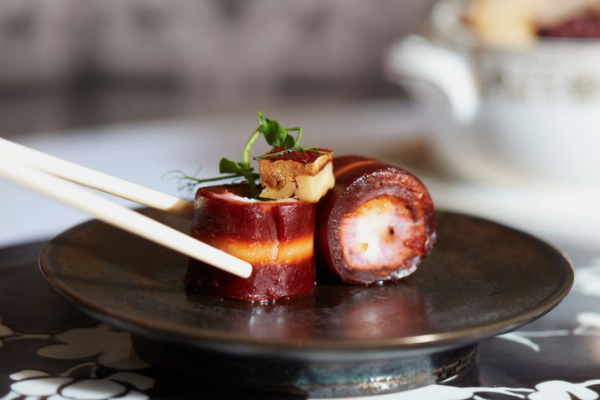Pichaya Soontornyanakij, affectionately known as Chef Pam, is Asia’s Best Female Chef 2024. The chef-owner of Bangkok’s one-starred Potong talks to Stephenie Gee about heritage, innovation and empowering the next generation of female talent

Don’t let the name fool you: Potong, meaning “ordinary”, is anything but. And that’s how Pichaya “Pam” Soontornyanakij, the Bangkok-born 34-year-old chef-owner, meant it to be. Served in the generations-old five-storey Sino- Portuguese building that housed her family’s Chinese herbal medicine business since 1910, a meal at Potong is an experience for the senses.
It all begins on the first floor, in the Potong Sino Bar and the former storefront of the dispensary, with a glass of kombucha crafted by the team of mixologists. Then, guests journey up to the rooftop – where Soontornyanakij’s ancestors used to assemble and stargaze in the evening – for light bites of house-made charcuterie, paired with wine and sweeping views over Chinatown. Finally, they are transported down to a table on the second or third floor, featuring beautifully preserved architectural elements like hand-painted wooden walls and an intricately designed shrine. Here await 20 inspiring dishes in a tasting menu that draws from her Thai-Chinese heritage, rooted in the idea of capturing and creating memories through the five senses and five elements.

“For five elements, I define this framework by mastering each element: salt, acid, spice, texture and Maillard reaction. Every element encompasses its very own unique and inherent properties and when combined, they work simultaneously to create one united universe,” Soontornyanakij explains. “As for the five senses, when I was working on the Potong project during my pregnancy, I read a book about teaching your kid. One part mentioned that it helps for them to memorise an object by experiencing all five senses – sight, sound, smell, taste and touch – at the same time. For example, an apple. If I wanted to teach them what an apple is, they need to see the colour, understand what it’s called, how it smells, what it feels like and how it tastes. At Potong, I believe that it’s possible to formulate a memory for my guests and liberate one to join my memories at the same time, so all dishes are enforced with this principle.”
How would you describe “progressive Thai-Chinese cuisine”?
My inspiration stems from the very root of my heritage. My goal is to always use as many local ingredients as possible and to put Thai-Chinese flavours into my dishes, because I believe that many people share the same memories as me growing up as Thai-Chinese. Thai-Chinese cuisine is nothing new, and there are many restaurants that serve it. Our cuisine is called “progressive Thai-Chinese cuisine” because we are trying to revive the cuisine and, at the same time, give it a new spin. It all begins with understanding the traditional flavour and cooking methods, though, because to recreate it
in a modern way requires a good understanding of the traditional way first. So I always learn the traditional way before applying any modernity to it.
Tell me about your signature duck dish.
Our signature duck is definitely showcasing the combination of traditional and modern methods
of cooking. It’s served during the main course “all about duck”. I took almost a year perfecting this dish even before the restaurant was opened, trying all the traditional methods and finding the best way to implement modern techniques to get the best out of this duck. Our duck is sourced from a local farm in Chachoengsao and we select a very specific size so that it doesn’t have much fat in the skin. Then, we marinate the inside with five spice and then partially cook the skin with a vinegar mix. We then hang it for 14 days so that the skin is dry and the meat is tender and then we roast in the oven at a very high temperature for exactly 13 minutes. This gives the meat a very tender texture and a very crispy skin. Some of my guests say this is the best duck they’e ever had and that makes my day.

What have been some of the challenges you’ve encountered with Potong?
I’ve always been an optimistic person. When opening Potong, I faced many challenges such as COVID, construction, staffing, etc. But everyone in the industry was suffering from these problems. We had to fight through these tough times together and I could only think positive and keep on moving. During those tough times, I had the chance to be a part of the committee for the community of the Song Wat area, where I was able to help group both old and new businesses to help promote the area together. I believe individually we are one drop. Together, we are an ocean. Which is why we were able to fight through those time. I don’t have any regrets. When I look back, everything is a lesson for me. And these have helped to motivate me keep going further in my career and to start the Potong project which took me about three years.
Potong is located in a slow zone. Was that a concern?
It was. Before us, no one had opened a restaurant on this street. This is a historical street (one of the oldest in Bangkok) and it’s part of a district where now people only sell wholesale shoes. It also wasn’t easy working without parking spaces. We were able to solve that by using a parking space in a temple a three-minute walk away, and also a shuttle tuk tuk of our own from another parking space to our restaurant. We don’t know if people will come to dine here, but I’m truly putting all my best in this restaurant. This is all I’ve got and I will make this work. I think through those tough times, we were able to make it. We were really happy that guests that dined at our restaurant kept passing down words to others so people would revisit us. This area was not recognised by any tourists before Potong was opened. Now, the Song Wat area is named 39th among the world’s coolest neighbourhoods with the help of the whole community and I’m proud to be a part of that.

How does Potong pay tribute to its TCM heritage and your family?
We took every detail of our heritage and history seriously at Potong. The bottles for our soap and alcohol dispensers were originally medicine bottles from Potong. If you visit our first floor, it’s like a museum of this 120- year-old building, with images and pictures and so on. If you look at the painting, we have augmented reality that will explain the building (all the paintings were made by my grand uncle). In our Opium Bar, we have a menu of Potong’s original medicine recipes.
What does winning Asia’s Best Female Chef 2024 mean to you?
I’m nowhere near “successful”, but I’m deeply honoured to receive this latest recognition as Asia’s Best Female Chef 2024. This award truly goes beyond my personal achievement. I believe this is because of the skill of our chefs, my respect for heritage, and my relentless willpower and passion to become greater. I will still keep pushing.
I feel motivated by this and it gives me the urge to keep going further in my career. I will still keep working hard! Dreams without goals are just dreams. You have to have the willpower and the skills to back it up! Don’t give up. Never give up. But always be humble while doing all that!

This award coincides with the winner’s announcement for your Women for Women (WFW) scholarship. Why did you decide to set up this programme with the American Women’s Club of Thailand (AWC)? And what does it mean for you to be able to support young women looking to find their path in this industry?
This WFW program means a lot to me. Although I’m just a small part of the industry, I want to try to help
and contribute to empowering young, aspiring female chefs. And one of my most recent projects is the
WFW Scholarship & Internship Program with AWC, promoting gender equality in the culinary industry. I met Valerie Munoz from AWC a year ago and I learned that
6,000 THB can help change the future of one female child in rural areas of Thailand to obtain a junior and high school diploma. AWC is run fully by volunteers, and that says something about this group – they truly want to help make life different for the young Thai female generation. I believe that education can truly make a difference in life and I want to be able to help contribute something in this space. So I founded the WFW scholarship together with AWC, which helps provide financial assistance to young women in the rural areas of Thailand who are passionate about pursuing a career in the culinary arts.
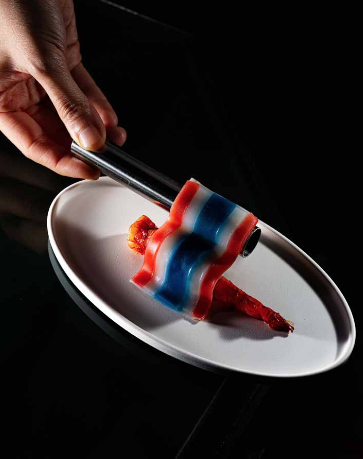
What do you hope guests take away from dining at Potong?
In short, a smile and a happy stomach! If I were to elaborate, it goes back to our key concept of capturing memories and the moment in our dining experience. I want my guests to be able to share their memories with mine, as I always believe time moves in one direction, memories in another.
What’s next?
I never stop and I will still keep pushing for more of Potong! I want to make my guests excited and we have many surprises for April, like a new “Revolution” menu. We look again at every dish we ever made and find the best possible way to revolutionise them.




